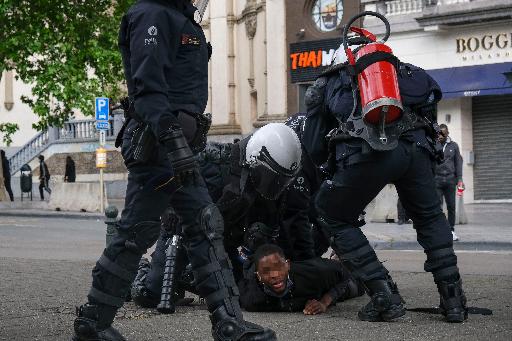Belgium’s human rights record was examined by the UN Human Rights Council’s Universal Periodic Review (UPR) Working Group last week.
The UPR is a unique process that involves a periodic review of the human rights records of all 193 UN Member States. Since its first meeting was held in April 2008, all 193 UN member States have been reviewed twice within the first and second UPR cycles.
A spokesperson for the United Nations Human Rights Council told The Brussels Times that there was no summary of the findings but confirmed that Belgium received in total 308 recommendations on its human rights situation. After examining them, Belgium will report to the Human Rights Council in September 2021 at the 48th regular session of the Human Rights Council.
Belgium is one of the 14 States that are reviewed by the UPR Working Group during its session taking place from 3 to 14 May. Belgium’s first and second UPR reviews took place in May 2011 and January 2016, respectively. This time, the Belgian delegation, composed of senior officials, was headed by minister of foreign affairs Sophie Wilmès.
The relevant UPR documents on Belgium can be found here. The draft report with recommendations has not yet been published.
According to the draft report adopted by UPR at its meeting on Friday (7 May), the recommendations formulated during an interactive dialogue have been examined by Belgium and enjoy its support. The Brussels Times reached out to the Belgian ministry of foreign affairs for a comment but had not received any response by press time.
A review of the lists of recommendations, however, reveals that the recommendations, proposed by UN member states, some of which are known for their own human rights violations, are general in nature, similar to each other and repetitive.
Related News
- World Press Freedom Day celebrated in Brussels as Difference Day
- Press freedom in Belgium remains ‘source of concern’, Reporters without Borders says
- UN 'concerned' about Belgium's police violence and racial profiling
Belgium is among others recommended to ratify the Optional Protocol to the Convention against Torture and other Cruel, Inhuman or Degrading Treatment or Punishment, step up efforts to establish a national human rights institution, and intensify its efforts to combat hate crimes, investigate these cases and bring the perpetrators to justice.
Not surprisingly, considering the infamous case in an arrest cell at Charleroi airport, Slovakia recommends that Belgium should “investigate promptly and thoroughly all cases of police abuse and brutality and hold accountable all perpetrators of crimes”.
Whether Belgium will heed Egypt’s recommendation to “conduct investigations by impartial and independent entities into the excessive violence committed by the security forces during demonstrations, and bring those responsible to justice” is less evident.
A controversial recommendation is probably to “refrain from transferring weapons when there is a risk that they could be used to commit or facilitate serious violations or abuses of human rights or international humanitarian law.” Belgium is not the only EU member state that is concerned by this recommendation.
Another UN body, the UN Committee on the Elimination of Racial discrimination (CERD), has also taken Belgium to task. At its latest session on 30 April, it issued a number of findings on Belgium.
CERD, composed of 18 independent experts, welcomed a number of legislative and policy measures taken by Belgium, including reforms to the Social Criminal Code and the Royal Decree in recent years to prevent racial discrimination in the workplace.
The experts, however, were concerned about a number of issues, including police-related racial violence – reports of an increase of police violence during the COVID-19 pandemic and recent anti-racism demonstrations, persistent racial profiling and hate speech. It also addressed the situation of Roma communities and migrants. The Committee, accordingly, made a series of recommendations.
CERD recommended among others that Belgium take measures to ensure prompt, thorough and impartial investigations into all allegations of racist incidents caused by or involving the police. It also called for ethnic diversity within the police force and urged Belgium to intensify efforts to combat effectively any practice of racial profiling by law enforcement officials.
M. Apelblat
The Brussels Times

